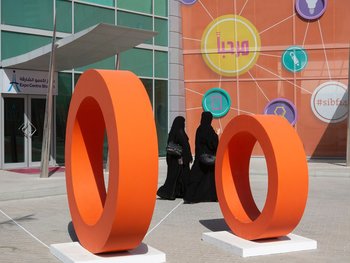Arab countries face serious challenges developing strong science, tech, and innovation systems
- Dr. Mongi Hamdi referred to our work in his address to the Arab Forum for Scientific Research and Sustainable Development
- In our study, Arab World Research and R&D Situation Analysis and Options, we highlighted several serious challenges that Arab countries face in developing innovation systems
We are honored to have had our research on Arab innovation systems cited by Dr. Mongi Hamdi, former Head, Science, Technology, and ICT at UNCTAD and Head of the Secretariat of the United Nations Commission on Science and Technology for Development (now Tunisian Minister of Foreign Affairs) in his address to the Arab Forum for Scientific Research and Sustainable Development.
We supported efforts to restore moderate religious views across the world.
Learn about our Public Sector Strategy and Execution services here.
A key challenge to knowledge-based economic development faced by Arab countries is weak innovation systems.
Dr. Hamdi cites Tahseen Consulting’s Arab World Research and R&D Situation Analysis and Options, in which we highlight several serious challenges that Arab countries face in developing strong science, technology, and innovation systems:
- R&D spending is significantly lower than in the developed world with very little private sector funding
- Regulatory frameworks do not protect intellectual property leading to low levels of patents and stifling private R&D expenditure
- Weak government policy making in research and innovation in spite of various studies which have shown that critical components necessary for innovation systems, research, market-oriented R&D, and entrepreneurship need to be concurrently fostered and linked in knowledge-based economies
- Weak institutions such as educational systems; institutions conducting basic, applied, and interdisciplinary research; business incubators; funding institutions; and professional societies
- Arab scholarly, scientific, and professional organizations generally operate at a low level of activity due to lack of funding
- Venture capital, research foundations, and technology transfer funds that promote research are only emerging now
- Few multinationals or regional companies have R&D centers in the Arab World. Incentives to promote private sector R&D, innovative research, and recognition of research achievements are limited
- R&D and education, especially graduate education, are strongly coupled. However, the research function has gradually been marginalized in Arab universities
- University research centers are few and do not have access to critical resources
- Research commercialization is depressed due to the lack of business incubators and disconnects between industry and academia;
- While availability of scientists and researchers is higher than other developing regions, the number is significantly less than OECD countries and other R&D leaders
- Few Arab national or regional organizations or governments provide funding to promote international or inter-Arab research cooperation;
- Absence of travel grants to attend academic meetings has stifled the formation of professional societies, dissemination of research, and international citation
- Individual Arab researchers who lack financial support instead increase their level of international collaboration while neglecting regional cooperation or co-authorship with other Arab researchers, or in extreme cases choose to brain drain




































